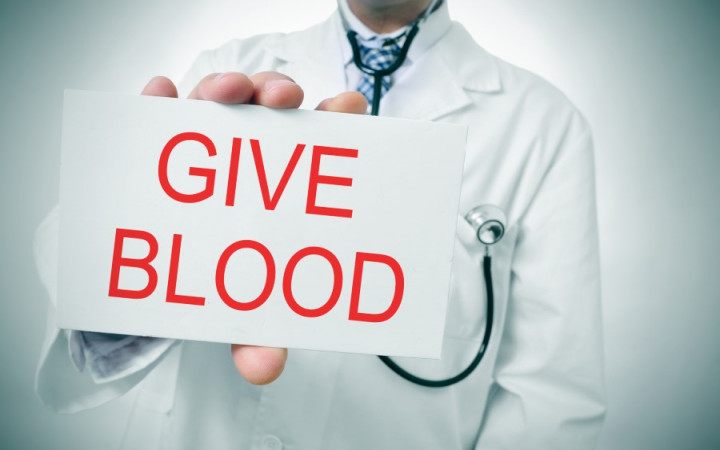Do you like to have fun on wheels? Whether it's on a bicycle, a skateboard, or a pair of rollerblades, most kids love to take to the streets on a set of well-oiled wheels. With the wind whipping through your hair, there's nothing quite like the feeling of speed and freedom that comes with a daring ride around the block.
Of course, all that fun can come to an abrupt halt when you hit a curb or some loose rock and go skidding along the pavement. Accidents happen, and they're no fun—especially when skin gets scraped and blood begins to flow.
If you've ever experienced a scraped and bloody knee, you know the worrisome feeling of seeing the blood that's supposed to be inside your body running down the outside of it. But don't worry! Scrapes are easy enough to fix, and your body will make more blood to replace the blood you lost.
Did you realize, though, that not everyone has the same type of blood? Sure, it all looks the same, but there are some important differences that can mean the difference between life and death should someone need a blood transfusion. A transfusion is when donated blood is given to an injured person to replace blood they've lost as the result of an accident.
What distinguishes one type of blood from another is the type of markers on the surface of the red blood cells. These markers, also called antigens, are proteins and sugars that help your body identify blood cells as belonging in your body. Based on these markers, the four main blood groups are A (has the "A" marker), B (has the "B" marker), AB (has both "A" and "B" markers), and O (has neither "A" nor "B" markers).
To complicate matters further, some people have an additional marker called Rh factor in their blood. Blood is then classified as either positive (has Rh factor) or negative (does not have Rh factor). As a result, there are a total of eight different blood types: A+, A-, B+, B-, AB+, AB-, O+, and O-. The two most common blood types are Type O+ and A+.
Why does it matter what blood type you have? If you ever need a blood transfusion, getting the right type of blood can be a matter of life or death. Your body naturally produces antibodies that protect against foreign cells entering your body. This includes blood cells that are not your specific blood type.
If you're given the wrong type of blood, your body's natural defense mechanism can kick in to attack the donated blood cells. This could lead to extreme sickness and even death. This is why hospitals and blood banks work hard to make sure that donated blood matches the blood type of the recipient.
Donated blood doesn't always have to be an exact match, though. For example, people with Type A blood produce B antibodies. That means you couldn't receive blood from someone with either Type B or AB blood, since these have B markers. You could, however, receive Type A or O blood.
People with Type AB blood have both A and B markers, so they can receive blood from someone with Type A, B, AB, or O blood. People with Type O blood, on the other hand, produce both A and B antibodies, so the only blood they can receive is Type O blood.
Two blood types have special qualities that make them universal. People with Type O- blood are known as universal donors, because Type O- blood can be given to any blood type since it contains none of the markers that can set off a reaction. Likewise, people with Type AB+ blood are considered universal recipients, since this type of blood has all the markers and thus can receive any type of blood.




